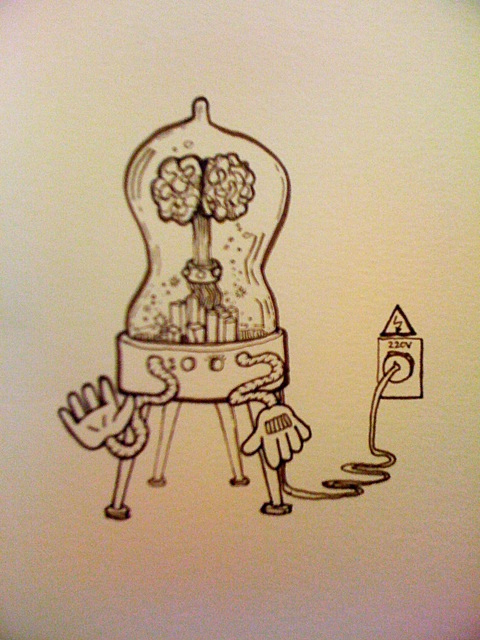Former Supreme Court Justice John Paul Stevens recently penned an op-ed for The New York Times which called for repealing the Second Amendment. He argues that the right to keep and bear arms stopped existing at some point in recent history. Here it is in his own words:
“’Concern that a national standing army might pose a threat to the security of the separate states led to the adoption of the [2nd] amendment, which provides that “a well regulated militia, being necessary to the security of a free state, the right of the people to keep and bear arms, shall not be infringed.’ Today that concern is a relic of the 18th century.”
Justice Stevens spent many years analyzing argumentative logic, from Texas vs. Johnson to Hamdan vs. Rumsfeld, so one should hope that he would actually use a bit of academic rigor in his op-ed. Unfortunately, this is not the case. Here are some issues with Justice Stevens’ reasoning:
- The Second Amendment makes no mention of a “standing army,” the threat it might pose to the states, or the threat that it could pose to the American people. Stevens is not using the letter of the law as a means of critique, but the potential motivations our nation’s founders had in writing the law. The last time I checked, it wasn’t the potential motivations of American legislators in 1787 that make up the Constitution, but the language of the Constitution that make up the Constitution (why does this even need mentioning?). It may be a “living document,” but the document lives in its words, not the motivations of long-dead legislators.
- Even if we believe that our Founders’ intentions in passing the Constitution are what really matter here, Justice Stevens’ argument still falls apart. Why? Because he provides zero supporting evidence for his claim regarding the concern of a standing army. He cites no speeches, letters, articles, or even drunken ravings of the Constitution’s writers (or from the many legislators who chose to vote in favor of the Second Amendment). A standing army was definitely a great concern for our Founders, but it could hardly be the only tyrannical threat our young nation faced. Without evidence to support his claim, Stevens may as well join Alex Jones on InfoWars.com. Wouldn’t that be a treat?

(inforwars.com, ladies and gentlemen)
3. Even if we go along with Stevens’ claim, that the Second Amendment’s sole purpose is protection from a standing army, his conclusion is still unfounded. That conclusion, calling the threat from a standing army “a relic of the 18th century,” could not be further from the truth. Not only does America still have a standing army, it is the most powerful active-duty military in the history of the world. Additionally, government reserve forces (Army, Air Force, Naval, and Marine Reserves, along with the National Guard, Air Guard, and Coast Guard), have armories and bases all across the country, and these reserve forces can be federalized at any time. Under the right conditions, this standing army is far more capable of tyranny than the army of 1787.
4. To be fair, I must note that it would be still difficult for today’s army to pose a tyrannical threat. American Soldiers are taught to not obey orders that are “manifestly illegal,” and they swear allegiance to the Constitution, not any singular person. However, we should remind those who agree with Justice Stevens that tyranny is inevitable, even in constitutional republics like ours. Abe Lincoln suspended habeus corpus. Franklin Roosevelt ordered the internment of thousands of Japanese Americans (an executive order upheld by the Supreme Court in Korematsu, because racism, abolishment of private property, and imprisonment without due process are technically OK when done in the name of “military security”). More recently, enemy captives from the war on terror have been tortured, our past three presidents have ordered military operations without the consent of Congress, and the modern police state (think NSA and FBI) gathers intelligence on millions of American citizens without warrants. These tyrannies were and are enforced through the military, or other government agents who, while not soldiers, are armed enforcers from the federal government, and are more than ready to commit violence on the state’s orders (sounds a lot like soldiers). These truths are acknowledged universally by the political left and the political right, but I guess Justice Stevens wasn’t paying attention to the real world over the course of his illustrious judicial career.
To keep the scope of my argument narrow, I will go no further. I am a staunch supporter of the right to bear arms, but my purpose here is only to show a reasoned disagreement with Justice Stevens’ argument, not to explain the many arguments I have in support of the Second Amendment. I hope that this disagreement is seen as (mostly) civil, logical, and true.
Sources:
Original Article from The New York Times.
NSA Intelligence Gathering: https://www.nationalreview.com/2017/05/nsa-illegal-surveillance-americans-obama-administration-abuse-fisa-court-response/.
Japanese Internment/Korematsu Decision: http://www.uscourts.gov/educational-resources/educational-activities/korematsu-v-us-balancing-liberties-and-safety
Torture of Captives in the War on Terror from Criminal Justice Review: http://journals.sagepub.com/doi/abs/10.1177/0734016808315585
Habeus Corpus Suspension Act: http://www.civilwaronthewesternborder.org/timeline/habeas-corpus-suspension-act
Strength of the U.S. Armed Forces: https://www.globalfirepower.com/country-military-strength-detail.asp?country_id=United-States-of-America
Featured Image from Henry Christensen, 2008.


 Last week’s Poop Scoop made an argument for pursuing your wants. It claimed that in the pursuit of happiness, your wants are just as important as your needs. I stand by my argument. HOWEVER…
Last week’s Poop Scoop made an argument for pursuing your wants. It claimed that in the pursuit of happiness, your wants are just as important as your needs. I stand by my argument. HOWEVER…

 (A photo of my weekly beef-purchase from Walmart. Those tubes are five pounds each. There’s a reason vegans hate me.)
(A photo of my weekly beef-purchase from Walmart. Those tubes are five pounds each. There’s a reason vegans hate me.)

